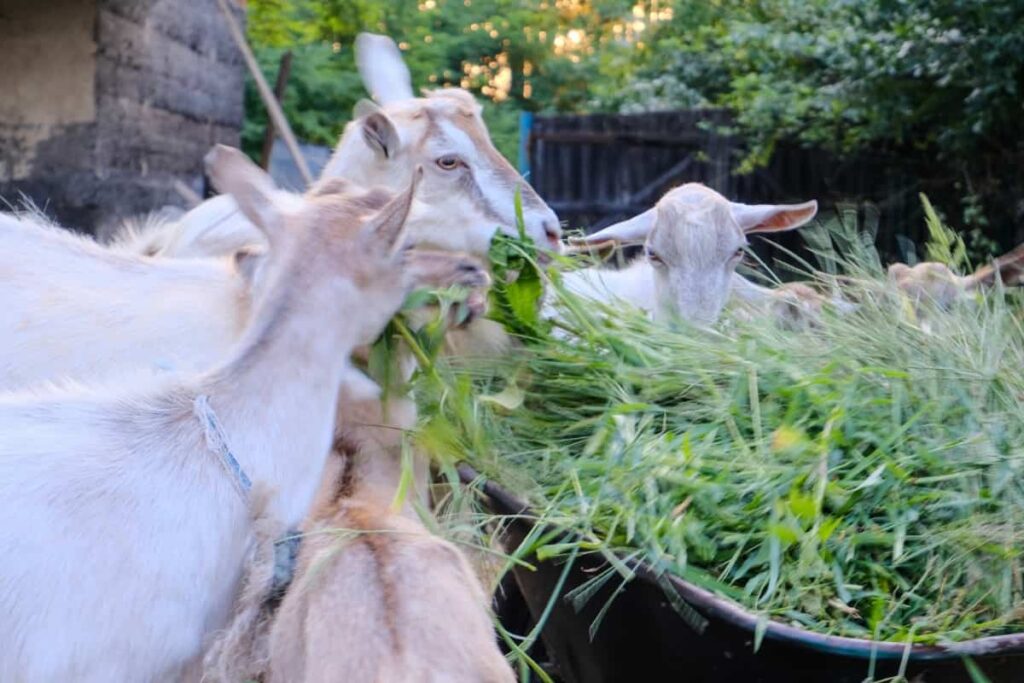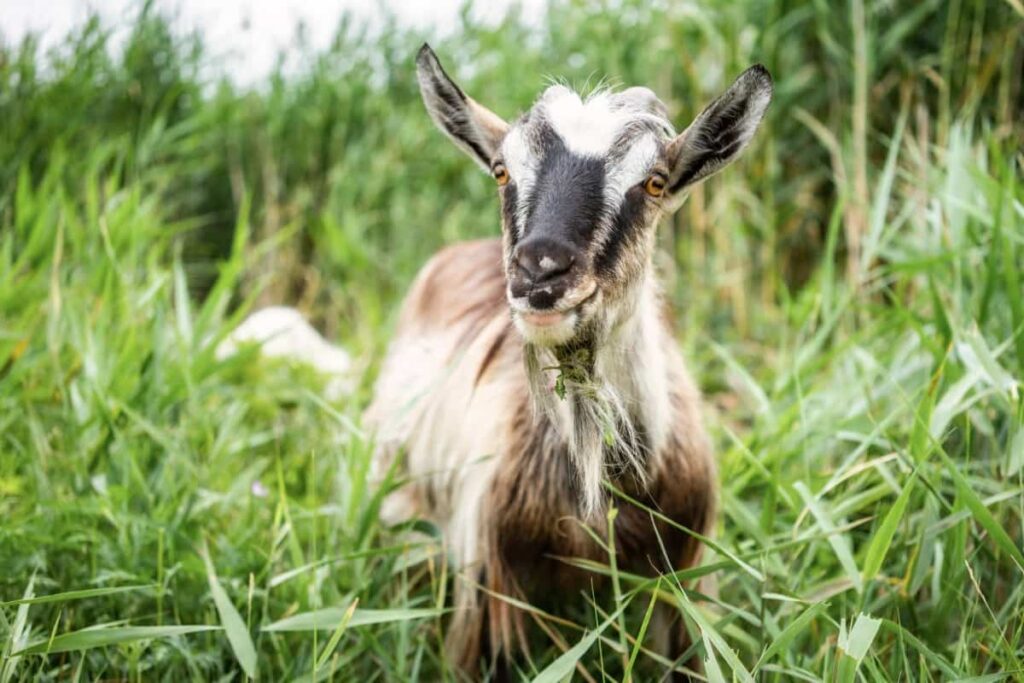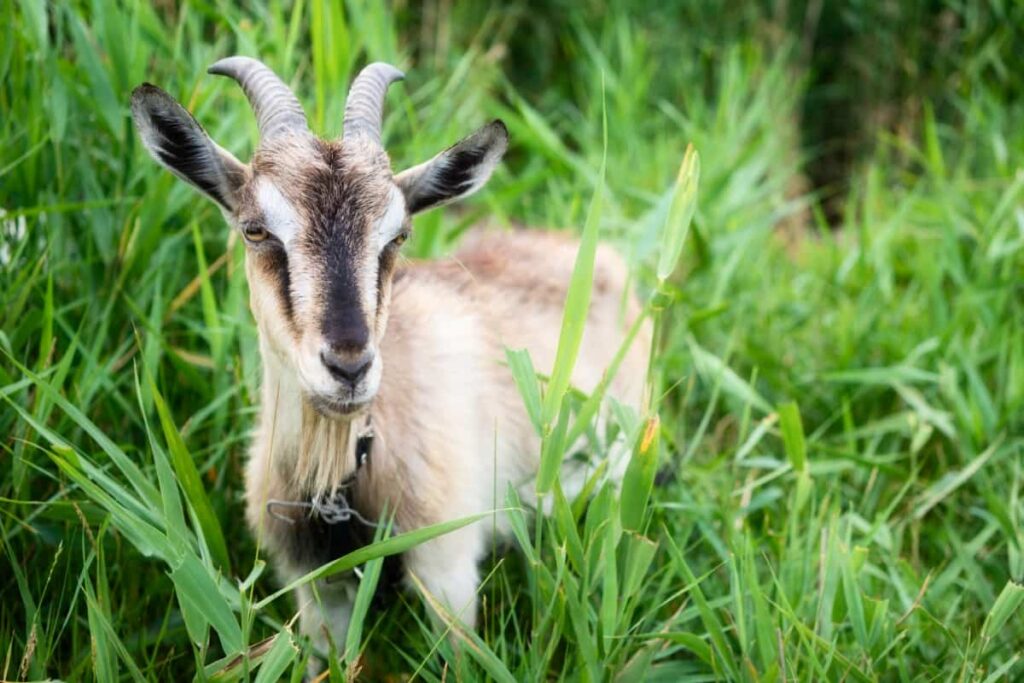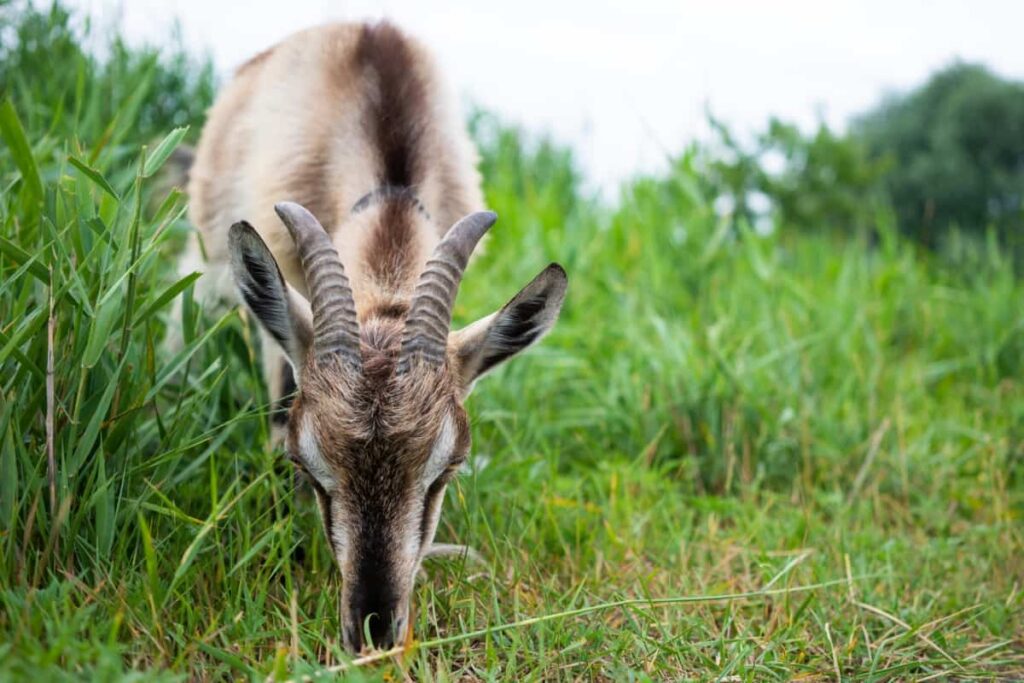Selecting the right types of grass for your goat farm is crucial for ensuring optimal nutrition and health for your goats. By choosing the appropriate grass varieties, you can provide your goats with a diverse and balanced diet while also promoting sustainable land management practices.

Bermuda Grass
This type of grass provides good nutritional value for goats, with a high protein content that supports their growth and overall health. Additionally, Bermuda Grass is known for its quick regrowth after being grazed, ensuring a continuous food source for the animals. Goats enjoy eating Bermuda Grass as it is palatable and easily digestible. Its dense turf also offers a comfortable surface for them to walk on while grazing.
Timothy Grass
This cool-season perennial grass is known for its high fiber content and is a favorite among goats for grazing. Timothy Grass thrives in cooler climates and can withstand regular grazing, making it ideal for rotational grazing systems. With its fine texture and palatable taste, Timothy Grass is often used as hay or pasture for livestock. Its ability to yield multiple cuttings throughout the growing season makes it a practical choice for sustainable farming practices.
Alfalfa
Alfalfa is a popular choice for goat farms due to its high nutritional value. This is rich in protein, vitamins, and minerals, making it an excellent option for grazing goats. Goats love the taste of alfalfa, which encourages them to consume more feed and stay healthy. Its deep root system helps improve soil structure and prevents erosion on the farm. This grass also acts as a natural nitrogen fixer, enriching the soil with essential nutrients for other plants to thrive.
In case you missed it: Ultimate Guide to Malwa Goat: Explore from Origin to Management Practices

Alfalfa’s ability to tolerate drought conditions makes it a reliable option for farmers in various climates. Additionally, alfalfa can be harvested as hay, providing farmers with a valuable source of fodder during the winter months. Incorporating alfalfa into your pasture can benefit both your goats’ health and farm productivity.
Sudan Grass
Sudan Grass is a popular choice among farmers. This fast-growing annual grass thrives in warm climates and provides excellent nutrition for goats. Its high protein makes it a valuable addition to their diet. Sudan Grass is known for its resilience against drought conditions, making it ideal for areas with limited water availability.
It can withstand hot temperatures and still produce abundant yields, ensuring a consistent food source for your goats throughout the season. This grass variety thrives on well-drained soil and regular watering. With proper care and maintenance, Sudan Grass can become a staple feed option on your goat farm.
Clover Varieties
Clover varieties are a popular choice for goat farmers looking to provide their animals with nutritious and palatable forage options. These legumes offer a range of benefits, including high protein content in the soil and improving overall pasture health. Red clover is known for its tolerance to grazing pressure and its ability to regrow quickly after being eaten by goats. White clover is another common variety that can withstand heavy grazing and provides excellent ground cover due to its creeping growth habit. Both types of clover are rich in vitamins and minerals that can help support the productivity of goats.
Ryegrass
This cool-season grass is highly palatable and provides excellent nutrition for goats. Ryegrass grows quickly, making it a great option for grazing or hay production. Its high protein content can help support your goats’ health and productivity. Additionally, Ryegrass has good regrowth potential after grazing, ensuring a sustainable food source for your animals. It also thrives in various soil types and climates, making it versatile for different farming environments. Consider planting this hardy grass variety to enhance the overall health and well-being of your goat herd.
In case you missed it: Goat Milking Practices and Equipment: A Beginner’s Guide

Fescue
Fescue is a popular grass choice for goat farms due to its hardiness and resilience. Its deep root system makes it drought-tolerant, perfect for areas with inconsistent rainfall. Goats love grazing on fescue as it provides them with essential nutrients. This grass variety thrives in various soil types, making it versatile for different farm settings.
Fescue also has good regrowth potential after grazing, ensuring a sustainable food source for your goats throughout the year. In addition to being nutritious and resilient, fescue is low maintenance compared to other grass species. Its ability to thrive in varying conditions makes it a reliable choice for goat farmers looking to provide their animals with quality feed options all year round.
Orchard Grass
Orchard Grass is a great option for goat farmers looking to provide their animals with a nutritious and palatable forage. This grass variety is known for its high yield potential and excellent regrowth after grazing, making it a sustainable choice for maintaining your goat farm. The benefit of Orchard Grass is its high protein content, which can help support the growth and development of your goats. When planting Orchard Grass on your farm, make sure to consider factors such as soil type, drainage, and climate to ensure optimal growth.
Bluegrass
Bluegrass is a popular choice for goat farmers looking to provide their herds with nutritious and tasty grazing options. This cool-season perennial grass thrives in temperate climates, making it ideal for many regions. Its root system enhances water retention, which is beneficial for sustainable farming practices.
In case you missed it: How to Train Goats for Milking: A Beginners Guide

Goats enjoy grazing on bluegrass due to its palatability and high nutritional content. It provides essential vitamins and minerals necessary for their overall health and well-being. Additionally, bluegrass can be easily established from seed or sod, making it a convenient option for farmers looking to improve pasture quality.
Bahia Grass
Bahia Grass is a popular grass for goat farmers due to its hardy nature and ability to withstand grazing pressure. This warm-season grass thrives in hot climates, making it ideal for regions with harsh summers. Its root system helps prevent soil erosion, which is essential for maintaining pasture health. The key benefit of Bahia Grass is its high tolerance to drought conditions, requiring minimal water compared to other grass varieties. This makes it a cost-effective option for goat farmers looking to conserve resources while providing nutritious forage for their animals.
With its coarse texture and excellent wear resistance, Bahia Grass can withstand heavy grazing by goats without losing its vitality. By carefully selecting grass varieties that are well-suited to local climate and soil conditions, you can ensure that your goats receive the nutrition they need to thrive while also promoting the long-term health of your pastures. Providing your goats with high-quality and nutritious grass can significantly impact their health.
- Top Goat Breeds for Maximum Profitability
- Goat Feed Options for Weight Gain
- Types of Grass Growing for Goat Farm
- How to Train Goats for Milking: A Beginners Guide
- Goat Milking Practices and Equipment: A Beginner’s Guide
- Goat Farming for Fiber: Producing Mohair and Cashmere
- Maximizing Goat Milk Production: Tips for Dairy Goat Farmers
- Goat Farming as a Family Business: Strategies for Success
- Profitable Kenya Goat Breeds for Commercial Dairy and Meat Business